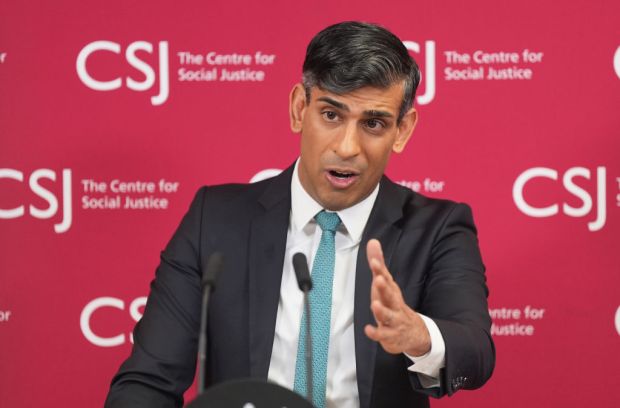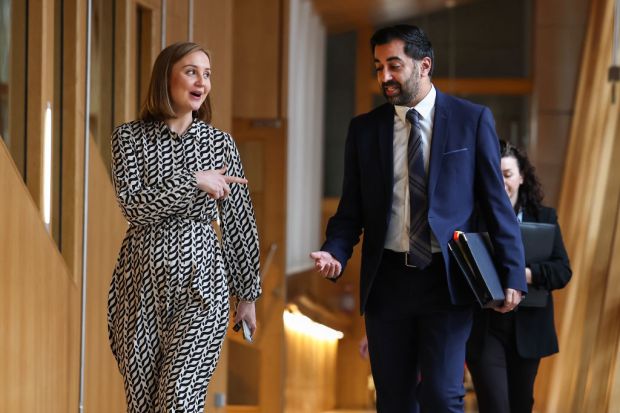Boris Johnson wants to turn your house green. This week, he published the plan for doing it. In fact, the strategy for delivering net zero carbon emissions is, in essence, to convert the whole economy — including your home — to electric power and then to deliver most of that power using offshore windfarms.
The fundamental problem with this approach, however, is what we will do when the wind isn’t blowing, or, just as importantly, when it unexpectedly stops blowing. The failure to address this issue upfront means that net zero is likely to fail, expensively. The stubborn refusal to do so, even now, means that failure may well be a catastrophic one.
As Steve Baker recently pointed out, successive governments have chosen to ‘wing it’ over the tricky details of net zero; energy storage is the trickiest detail of them all. Ministers sometimes mention batteries as part of the answer, but this is simple deception. The grid already uses batteries for stabilisation of grid frequency, but they are simply not plausible for bulk storage — Professors Peter Edwards and Peter Dobson of Oxford University recently noted that sufficient batteries to see us through a ten-day wind lull would cost around £160,000 per household. In reality, we’d need enough to get through lulls much longer than that.
Each and every new decarbonisation strategy, therefore, needs to be assessed by how it will work when the wind dies.
Electric heat pumps, which form the core of the UK’s strategy to decarbonise homes, are not going to be immune. Unless the electricity storage issue is solved, a lull in the wind will inevitably mean that demand from homes will need to be reduced. This could be done through smart meters, which an increasingly desperate government is trying to force every home in the country to install. These can encourage users to reduce their electricity demand ‘voluntarily’, through pricing mechanisms, but if that proves inadequate, they can also adjust the temperature on your thermostat (this is reported to have happened in the US already) and even cut the power to individual appliances — your heat pump or your electric vehicle charger — or to the home as a whole.
And if the wind lull coincides with cold weather — as is quite normal — things could get very ugly indeed. The cold will increase demand in its own right, but it will also cut heat pump efficiency, putting up the load on the grid still further (the Climate Change Committee itself has admitted that this could cause a major demand spike on the grid). If that happens, expect your power to be cut in very short order. You may well be very cold, and possibly for weeks at a time. Don’t even dream of charging your electric car.
If, after considering all of the above, a heat pump seems a less-than-ideal solution, it is also worth considering the costs involved. Not only are heat pumps more expensive to run, but the capital cost of installing them in every home in the land will be substantial (or even ruinous). A typical home may well require complete replumbing on top of the cost of the heat pump itself, so you are looking at £12,000 to start with. And then, because heat pumps deliver only very gentle heat, most homes will need expensive upgrades to their insulation. The bill here could be extraordinary: a Whitehall pilot project in 2009 implied a cost for decarbonising the nation’s homes of between £2 to £4 trillion, depending on how optimistic you were about future price reductions. To put that in perspective, we are talking up to £140,000 per household, about half the value of the average UK house.
Ministers and environmentalists tend to wave these problems away; when quizzed, they intone the names of technologies that they say will save us but are, in reality, either vastly too expensive (hydrogen), will only help at the margins (heat batteries and interconnectors), or are barely off the drawing board.
But we are rapidly approaching a time when wishful thinking collides with reality. The decarbonisation bills are going to start arriving in the post very soon, and then the truths will out: renewables are not getting that much cheaper, decarbonisation is very hard, and the price for trying to achieve it means real hardship. The public reaction is likely to be unforgiving.
Action must be taken and it must be taken now. I hope, particularly for the sake of the most disadvantaged and vulnerable in society, that Boris Johnson and his policy makers wake up to this impending crisis before it is too late. <//>
Got something to add? Join the discussion and comment below.
Get 10 issues for just $10
Subscribe to The Spectator Australia today for the next 10 magazine issues, plus full online access, for just $10.



















Comments
Don't miss out
Join the conversation with other Spectator Australia readers. Subscribe to leave a comment.
SUBSCRIBEAlready a subscriber? Log in